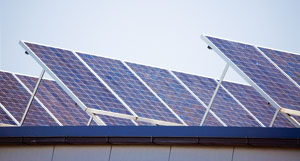Advertisement
Grab your lab coat. Let's get started
Welcome!
Welcome!
Create an account below to get 6 C&EN articles per month, receive newsletters and more - all free.
It seems this is your first time logging in online. Please enter the following information to continue.
As an ACS member you automatically get access to this site. All we need is few more details to create your reading experience.
Not you? Sign in with a different account.
Not you? Sign in with a different account.
ERROR 1
ERROR 1
ERROR 2
ERROR 2
ERROR 2
ERROR 2
ERROR 2
Password and Confirm password must match.
If you have an ACS member number, please enter it here so we can link this account to your membership. (optional)
ERROR 2
ACS values your privacy. By submitting your information, you are gaining access to C&EN and subscribing to our weekly newsletter. We use the information you provide to make your reading experience better, and we will never sell your data to third party members.
Environment
House Passes Energy Bills
Renewable energy would get boost through House bills
by Jeff Johnson
August 13, 2007
| A version of this story appeared in
Volume 85, Issue 33
IN A RARE SATURDAY vote on Aug. 4, the House cleared two energy-related bills, one emphasizing renewable energy and efficiency and the other focusing on energy taxes by eliminating tax breaks for oil and gas production and adding tax support for renewable energy.
More than a month earlier, the Senate passed its energy bill. The two bills have differences, which Congress will try to resolve in conference committee debate when members return in September from the August recess. The conference is likely to be difficult but lively.
Among the dissimilarities, the House bill would require that, by 2020, utilities generate 15% of their electricity from renewable sources—wind, solar, and hydropower. Sen. Jeff Bingaman (D-N.M.) pushed unsuccessfully for such a "renewable portfolio standard" in the Senate but could not overcome objections by Sen. Pete V. Domenici (R-N.M.) and others. Bingaman and Domenici will continue their disagreement in conference, as both will be at the conference table.
Another hot area is auto efficiency standards, which are in the Senate bill but not in the House bill, primarily due to strong objections from Rep. John D. Dingell (D-Mich.). Although other House members are likely to try to add auto efficiency to the conference bill, Dingell, as chair of the House Energy & Commerce Committee, is sure to be there to try to bat down their amendments.
In addition, the Senate bill includes support for cellulosic ethanol, and the House bill does not. Ethanol has powerful congressional supporters who are likely to try to include such provisions during conference.
Although the House bill's bent for renewable energy enjoys support from environmental groups and renewable energy advocates, the American Chemistry Council and other industry organizations bemoan provisions removing incentives for greater natural gas and oil production and blocking access to potential gas fields.
Energy Secretary Samuel W. Bodman warned that the President will veto the bill if the final version contains no production incentives.






Join the conversation
Contact the reporter
Submit a Letter to the Editor for publication
Engage with us on Twitter